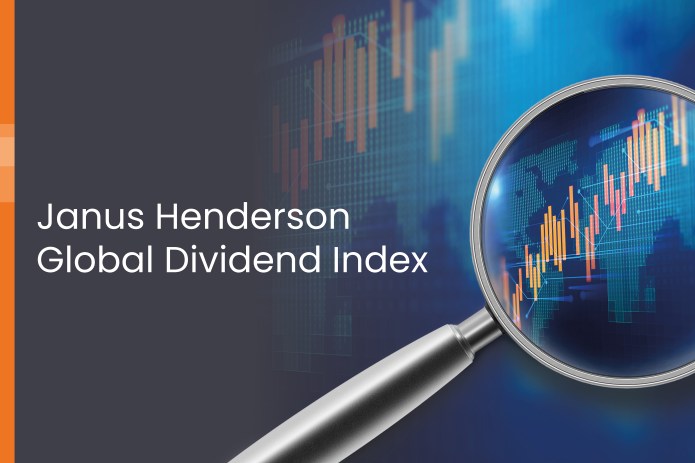

The Janus Henderson Global Dividend Index (JHGDI) is a quarterly, long-term study into global dividend trends. The index measures the progress global firms are making in paying their investors an income on their capital.
Global dividends rose to a first-quarter record of US$339.2 billion, up by 6.8% on an underlying basis, according to the latest Janus Henderson Global Dividend Index. Despite the pandemic in the intervening years, payouts in Q1 2024 were 51% larger than in the same period in 2017.
Banks were the key driver of Q1 dividend growth
The sector picture is one of broad-based strength. Only six of our 35 sectors saw declines and, transport aside, all the others only saw falls of 3.5% or less. Most sectors booked solid single-digit underlying increases.
The banking sector made the largest contribution to Q1 growth, accounting for almost a quarter of the year-on-year underlying increase, and an even larger share of the headline increase owing to special dividends in Sweden. Banking payouts rose by 12.0% on an underlying basis.
Headline vs. underlying
The first-quarter headline growth rate was more than four percentage points lower than the underlying increase thanks almost entirely to much lower one-off special dividends. These had remained near record levels in 2023 with continued largesse from the energy sector alongside a handful of very large individual payments. We have flagged that we expected a reversion towards more normal levels this year and that is simply what happened in the first quarter.
Q1 2024 was unusual as exchange rates, at least at the global level, made no impact on the headline figure. Over the long term, exchange rate movements can be entirely disregarded as a factor affecting global dividend growth owing to the benefits of diversification, but in individual periods or in individual countries, they can often have quite a large impact.
2024 Forecast
The first quarter was broadly in line with our expectations and we are encouraged that the rest of the year continues to promise steady progress. The broad picture is one of continued dividend resilience, especially in Europe, the US, and Canada both in the second quarter and for the full year.
Ben Lofthouse, Head of Global Equity income at Janus Henderson, said: “Investors have enjoyed a strong start to 2024, with share prices rising globally and dividend growth sustaining the strong underlying momentum it reached towards the end of 2023. We have reasonable visibility over payouts in the crucial second quarter, which sees seasonal peaks in Europe, Japan and the UK. The broad picture is one of continued resilience, especially in Europe, the US and Canada, though a very small handful of large companies have announced significant dividend cuts.
All this means no change in our forecast for 2024. We continue to expect companies to distribute a record US$1.72 trillion to their shareholders this year, a headline increase of 3.9% year-on-year equivalent to a rise of 5.0% on an underlying basis. With one-off special dividends likely to make a up a smaller share of the total this year than in 2023, headline growth is set to be slower on current trends than the underlying picture.”
Special focus: Share buybacks
Companies spent much less buying back their own shares in 2023 even as dividends climbed to a new record for the year. The US$1.11 trillion total was US$181 billion lower than in 2022, a significant decline of 14.0% year-on-year, and large enough to take 2023’s buybacks below the 2021 total.
The decline does, however, come from a very high base and leaves the annual total still well above its pre-pandemic levels. The comparison to dividends is instructive – dividends have been growing strongly in recent years (with the exception of 2020) and rose to a record in 2023 – that means the value of buybacks slipped to 76% of dividends paid in the same period, down from 93% in 2022 and the lowest relative level since 2017.
Unless otherwise stated, all data is sourced by Janus Henderson Investors as of 31 March 2024. Nothing in this document should be construed as advice.